Animals
-
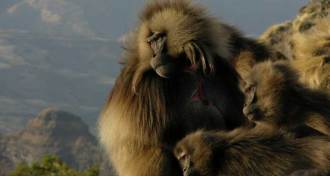 Humans
HumansGelada monkeys know their linguistic math
The vocalizations of gelada monkeys observe a mathematical principle seen in human language, a new study concludes.
-
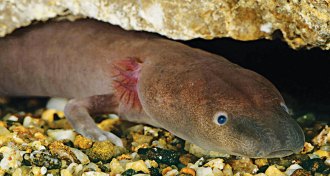 Animals
AnimalsCave-dwelling salamander comes pigmented and pale
Something’s funny in the family tree of pale, slinky cave salamanders.
By Susan Milius -
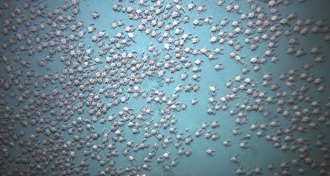 Animals
AnimalsScientists find a crab party deep in the ocean
A trip to check out the biodiversity off the coast of Panama revealed thousands of crabs swarming on the seafloor.
-
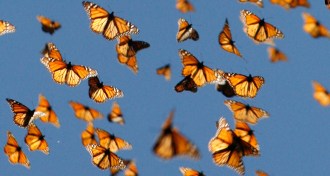 Animals
AnimalsMath models predict mysterious monarch navigation
Researchers have come up with a series of equations to predict how monarchs use their eyes and antennae to figure out how to get to Mexico.
-
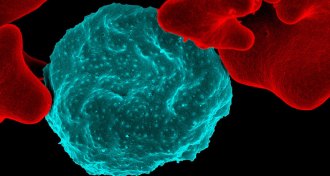 Genetics
GeneticsMalaria parasite doesn’t pass drug immunity to its offspring
Malaria parasites resistant to the antimalarial drug atovaquone die in mosquitoes, a new study finds.
-
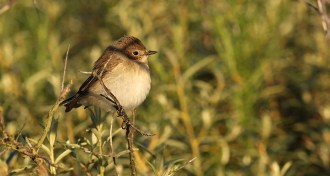 Animals
AnimalsPied flycatchers cruise nonstop for days to cross the Sahara
Teeny, tiny passerine birds called pied flycatchers fly day and night during their annual migration south across the Sahara.
-
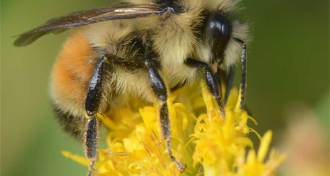 Climate
ClimatePollen becoming bee junk food as CO2 rises
Rising CO2 lowers protein content in pollen, threatening nutrition for bees.
By Susan Milius -
 Oceans
OceansReaders question ocean health
Ocean plastics, ant behavior, pollution solutions and more in reader feedback.
-
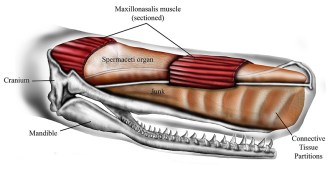 Animals
AnimalsA sperm whale’s head is built for ramming
Computer simulations of a sperm whale’s head show that an organ called the junk may help protect the brain when ramming other whales — or ships.
-
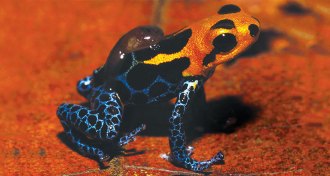 Animals
AnimalsPiggybacking tadpoles are epic food beggars
Tadpoles beg so frantically among mimic poison frogs that researchers check to see whether they’re just scamming.
By Susan Milius -
 Life
Life‘Wild Ways’ showcases need for wildlife corridors
The TV documentary 'Wild Ways' shows how wildlife corridors bridge the gap between isolated populations of animals.
-
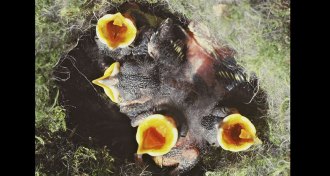 Animals
AnimalsMama birds pay attention to more than chicks’ begging
Whether a mama bird decides to feed her offspring depends on more than just who begs most — her environment is a big factor, a new study finds.